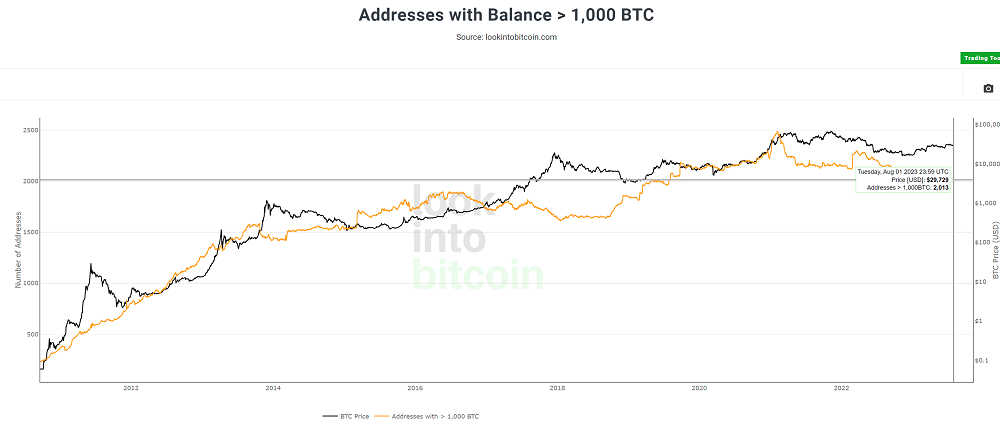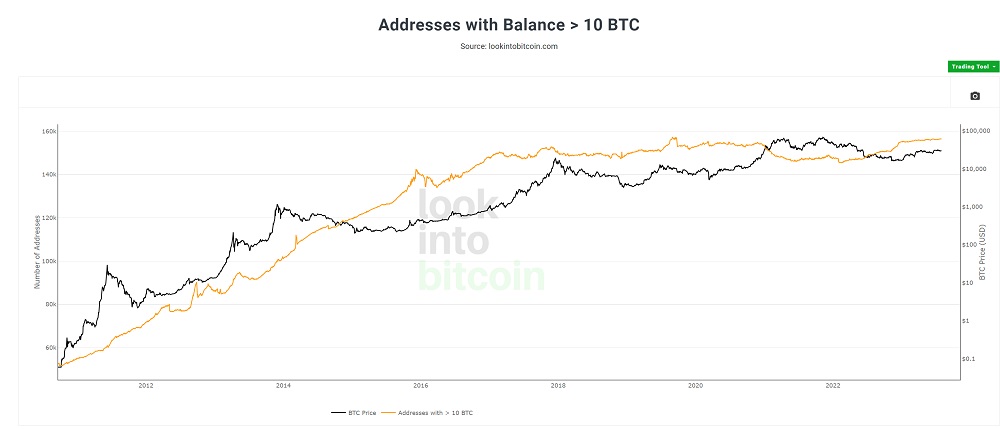 In the crypto community, there has long been its own terminology for naming investors based on their investments in cryptocurrencies. You have probably heard that among crypto investors, there are whales who are not just followed but also ranked, and various analytical data is collected about them. Whales are investors with significant amounts of cryptocurrencies, and they can influence their prices at their discretion, regardless of the current market situation. So, who are these cryptocurrency whales, how much cryptocurrency do you need to become a whale, and how many cryptocurrency whales are there? We will explain all of this in this article.
In the crypto community, there has long been its own terminology for naming investors based on their investments in cryptocurrencies. You have probably heard that among crypto investors, there are whales who are not just followed but also ranked, and various analytical data is collected about them. Whales are investors with significant amounts of cryptocurrencies, and they can influence their prices at their discretion, regardless of the current market situation. So, who are these cryptocurrency whales, how much cryptocurrency do you need to become a whale, and how many cryptocurrency whales are there? We will explain all of this in this article.
Who are cryptocurrency whales?
As mentioned, cryptocurrency whales are crypto investors with large amounts of cryptocurrencies in their accounts. To become a cryptocurrency whale, you need to have at least 1000 bitcoins (BTC) or any other cryptocurrency that is equivalent to at least 1000 BTC in value. Currently, 1000 BTC is approximately worth 30 million dollars, which is a substantial amount for an individual investor or trader, even by the standards of the traditional financial market.
Because of their significant holdings, whales can heavily influence the prices of various cryptocurrencies, especially for low-market-cap cryptocurrencies or popular ones like Bitcoin and Ethereum in the long term, by accumulating or selling these assets. That's why there are various metrics and statistics for analyzing whale actions in the crypto market, which can help evaluate how whales perceive the current cryptocurrency market situation. Based on this analysis, one can adjust their market strategies accordingly.
Services that track the behavior of cryptocurrency whales are called Whale Alert or Whale Tracker. However, you can also use regular blockchain explorers (e.g., BTCscan, Etherscan), where you can find statistics about the wealthiest wallets.
Cryptocurrency Whale Trackers:
debank.com (ETH)
The number of cryptocurrency whales:
Since blockchain technology is completely transparent, it is not difficult to count the number of wallets with balances containing more than 1000 BTC or other cryptocurrencies equivalent in value. The challenge arises when trying to determine all the cryptocurrency whales who own various cryptocurrencies, not just the top 10, as there are already several thousand different cryptocurrencies, each with its own set of whales.
In this article, we will only focus on Bitcoin whales, and for that, we will use the service lookintobitcoin.com, which provides statistics on the number of wallets with balances of more than 1000 BTC.

As of August 2023, there are slightly over 2000 Bitcoin whale wallets with balances exceeding 1000 coins. This number has not been growing; in fact, it has been decreasing since 2021.
The list of Bitcoin whales includes not only private investors but also exchanges and various services that hold Bitcoins on behalf of their users. Additionally, different BTC wallets may belong to the same owner, making it challenging to precisely determine the number of Bitcoin whales among individuals. For statistical purposes, each Bitcoin address is considered an independent Bitcoin whale. In some cases, cryptocurrency exchange and service addresses are excluded if their public addresses for holding cryptocurrencies are known.
Cryptocurrency whales, sharks, dolphins, and other marine creatures:
If individuals with more than 1000 BTC are called cryptocurrency whales, smaller investors have their own names:
- Humpback whales (more than 5000 BTC).
- Whales (1000-5000 BTC).
- Sharks (500-1000 BTC).
- Dolphins (100-500 BTC).
- Fish (50-100 BTC).
- Octopuses (10-50 BTC).
- Crabs (1-10 BTC).
- Shrimps (less than 1 BTC).
If we refer again to the service lookintobitcoin.com, where you can monitor the number of wallets with balances starting from 0.01 BTC, we can estimate the number of Bitcoin wallets with different balances:
- More than 0.01 BTC - 12,214,741 addresses (taken as 100%).
- More than 0.1 BTC - 4,425,584 addresses (36%).
- More than 1 BTC - 1,011,196 addresses (8%).
- More than 10 BTC - 156,486 addresses (1.2%).
- More than 100 BTC - 15,878 addresses (0.13%).
- More than 1000 BTC - 2013 addresses (0.016%).

It is worth noting that the number of wallets with more than 10 BTC has been steadily decreasing since 2020, while smaller wallets continue to grow. This is primarily due to the high cost of Bitcoin, as only a few can afford to buy 10 BTC (worth $300,000) for long-term investments, even in developed countries. As a result, the overall percentage of Bitcoin whales is constantly decreasing, and at the moment, there are only 0.016% of whales with more than 1000 BTC.
Average number of bitcoins per person on Earth: If we divide the total mined 19,446,412 bitcoins by August 3, 2023, by the global population of 8,106,044,635 people, each person would have only about 0.0024 BTC. Therefore, even 12 million owners of 0.01 BTC each currently have at least 5 times more BTC on average than what is available for each individual, despite this amount being only $300.
Who are you in the world of cryptocurrencies? Are you a whale or a shrimp in the world of cryptocurrencies? Take an anonymous survey in our Telegram channel.









